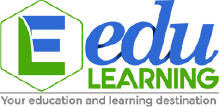The notion of intelligence is multidimensional and continues to be the subject of intense discussion among experts in psychology and education. Traditionally, intelligence has been measured through IQ tests, focusing mainly on cognitive skills such as problem-solving and logical reasoning. However, contemporary thought acknowledges that intelligence is not solely encapsulated in cognitive abilities; it also encompasses emotional, social, and adversity quotients (EQ, SQ, AQ, respectively). Understanding these multiple facets of intelligence can help individuals better appreciate their unique qualities and potential, be it in personal relationships, career choices, or academic pursuits.
Intelligence Quotient (IQ)
The Intelligence Quotient (IQ) has long been considered a key indicator of intellectual potential. A high IQ suggests strong logical reasoning, problem-solving abilities, and is often predictive of academic success and professional performance. But IQ is not the sole determinant of life success; it simply indicates an individual's proficiency in traditional cognitive tasks such as mathematics, memory recall, and comprehension.
Emotional Quotient (EQ)
Emotional intelligence, or EQ, measures a person's ability to identify, understand, and manage emotions—both their own and those of others. A strong EQ can often be more indicative of success in both personal and professional spheres than a high IQ. EQ encompasses qualities such as empathy, self-awareness, and emotional regulation. For instance, maintaining a positive attitude, timeliness, honesty, and genuine respect for others also fall under the umbrella of EQ skills.
Social Quotient (SQ)
SQ, or Social Quotient, quantifies an individual's skill in navigating social situations. It encapsulates effective communication, networking, and interpersonal relations. High SQ individuals excel in roles requiring people skills, such as sales, public relations, and leadership roles. Unlike IQ, which is more innate, SQ can be developed and refined through interactions and experiences, making it crucial for holistic personal development.
Adversity Quotient (AQ)
Adversity Quotient (AQ) gauges how well a person can withstand and recover from challenging circumstances. High AQ individuals are resilient, adapt well to adversity, and recover from setbacks without losing their sense of self. In essence, AQ measures your "grit" and resilience, vital qualities when facing life's inevitable obstacles.
Fostering Holistic Intelligence in Children
Parents looking to raise well-rounded children should focus on nurturing not just IQ, but EQ, SQ, and AQ as well. A balanced development strategy includes exposure to a diverse range of experiences, from academic challenges to social interactions and problem-solving opportunities. By doing so, parents prepare their children for real-world situations that require more than just academic intelligence.
The Role of Educational Institutions
Educational institutions, particularly training organisations, must equally invest in the holistic development of students across all four intelligence metrics. This equips them with the skills necessary for a balanced, successful life, transcending academic and career performance metrics.
FAQs:
1. What are the four main types of intelligence?
The four main types of intelligence are Intelligence Quotient (IQ), Emotional Quotient (EQ), Social Quotient (SQ), and Adversity Quotient (AQ).
2. What is the Intelligence Quotient (IQ)?
IQ measures cognitive abilities such as problem-solving, logical reasoning, and intellectual potential. It's often considered a predictor of academic success.
3. What is the Emotional Quotient (EQ)?
EQ gauges emotional intelligence, focusing on the ability to identify, understand, and manage both your own emotions and those of others.
4. What is the Social Quotient (SQ)?
SQ measures the aptitude to interact effectively with people and excel in social settings, often seen in roles like sales, marketing, and leadership.
5. What is the Adversity Quotient (AQ)?
AQ evaluates an individual's resilience and ability to recover from setbacks, essentially assessing how well someone can cope with challenges.
In summary, while IQ remains an important metric, it is equally crucial to develop EQ, SQ, and AQ for a well-rounded, successful life.














































